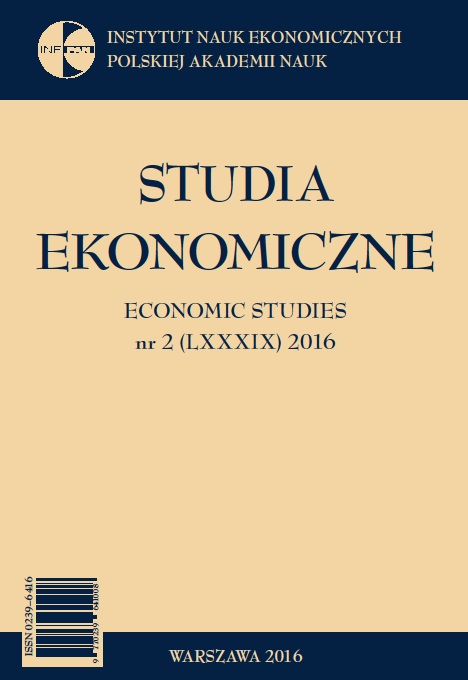Technology gap and economic crisis in new and old Europe
Technology gap and economic crisis in new and old Europe
Author(s): Stanisław KubielasSubject(s): Economy, National Economy, Supranational / Global Economy
Published by: Instytut Nauk Ekonomicznych Polskiej Akademii Nauk
Keywords: technology gap; economic growth; crisis; accession; convergence; innovation and diffusion;European Union (EU)
Summary/Abstract: The purpose of this paper is to study the interrelationships between economic fluctuations, dynamics of technology gap and convergence in the European Union. We presume that these processes are linked by innovation mechanisms, which are different in the markets that are at the technology frontier and in the catching up countries. In the former, we found a supply-based innovation mechanism and a demand-based innovation mechanism in the latter. This determines different adjustment processes in various phases of the cycle in these two groups of countries. We investigated the impact of technology gap on economic fluctuations (crisis) and that of economic fluctuations on technology gap reduction and convergence. We found that greater technology gaps amplified economic fluctuations whilst economic slowdowns (crises) impeded technology gap reductions and convergence. These results are explained by the interaction of different innovation mechanisms in the technology frontier and in the catching up countries. The principal factor of the gap reduction in less developed countries is the size of the gap itself (Gerschenkron’s effect). The per capita GDP convergence in the EU occurred mainly through technology gap reductions in the less developed countries where also the biggest structural changes in output and trade took place. Crisis slowed down the process of convergence and the accession of new countries speeded it up.
Journal: Studia Ekonomiczne
- Issue Year: 2016
- Issue No: 1
- Page Range: 7-46
- Page Count: 40
- Language: English

